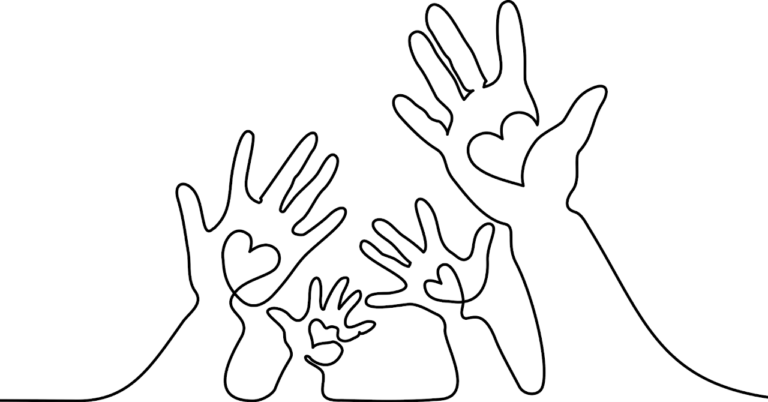Juvenile Dependency & DHS Cases

The Oregon Department of Human Services (DHS) is responsible for the wellbeing of minors who reside within the state. If DHS receives a report to the Child Abuse Hotline regarding child endangerment or neglect, DHS will investigate the report and determine whether there are safety risks to the child(ren). If DHS develops a legitimate concern for the safety or wellbeing of a child, they will seek to become involved with the family. DHS may offer voluntary services to the parents/guardians or may file a dependency petition with the court to initiate court involvement. The legal process starts once a dependency petition is filed in Juvenile Court.
There are strict timelines in place once a legal case is initiated. It is important for parties to take swift action and consult with a lawyer right away. Contact Amber for a free consultation.
The Oregon Department of Human Services (DHS) is responsible for the wellbeing of minors who reside within the state. If DHS receives a report to the Child Abuse Hotline regarding child endangerment or neglect, DHS will investigate the report and determine whether there are safety risks to the child(ren). If DHS develops a legitimate concern for the safety or wellbeing of a child, they will seek to become involved with the family. DHS may offer voluntary services to the parents/guardians or may file a dependency petition with the court to initiate court involvement. The legal process starts once a dependency petition is filed in Juvenile Court.
There are strict timelines in place once a legal case is initiated. It is important for parties to take swift action and consult with a lawyer right away. In Juvenile Dependency cases, both the children and the parents have the right to a lawyer. The lawyer can accompany their client to court hearings and can present evidence at contested hearings. Juvenile Dependency cases are complex and can be very traumatic for those involved. If you have any specific questions or concerns regarding your case, allow an experienced lawyer to assist you.
The Oregon Department of Human Services (DHS) is responsible for the wellbeing of minors who reside within the state. If DHS receives a report to the Child Abuse Hotline regarding child endangerment or neglect, DHS will investigate the report and determine whether there are safety risks to the child(ren). If DHS develops a legitimate concern for the safety or wellbeing of a child, they will seek to become involved with the family. DHS may offer voluntary services to the parents/guardians or may file a dependency petition with the court to initiate court involvement. The legal process starts once a dependency petition is filed in Juvenile Court.
There are strict timelines in place once a legal case is initiated. It is important for parties to take swift action and consult with a lawyer right away. In Juvenile Dependency cases, both the children and the parents have the right to a lawyer. The lawyer can accompany their client to court hearings and can present evidence at contested hearings. Juvenile Dependency cases are complex and can be very traumatic for those involved. If you have any specific questions or concerns regarding your case, allow an experienced lawyer to assist you.
Juvenile dependency law in Oregon has developed many acronyms and terms specific to this area of legal practice.
DHS or ODHS - Oregon Department of Human Services.
The Agency - when you hear the court or parties refer to the “agency,” they are referring to the social worker and his or her organization.
CPS - Child Protective Services. CPS is part of Oregon Department of Human Services (DHS or ODHS)
Petition - the paper filed with the juvenile court initiating a dependency case that lists DHS’s concerns for the child(ren)’s safety.
Child’s Attorney -the lawyer appointed to represent the child.
CASA - stands for Court Appointed Special Advocate. This is an adult appointed by the court is some cases to help the child, mentor the child, and report to the court on the child’s behalf. This person is not a lawyer.
Case Plan - the court’s goal for the case. The case plan generally begins as reunification, but can change to guardianship, adoption, or another permanent plan if reunification is not achieved.
Conditions of Return/Dismissal - the steps the court will order a parent to take in order to reunify with a removed child or have their dependency case dismissed. The expectations are ordered by the court and generally involve engaging in services.
Services - Court ordered services are requirements in the case plan and include a list of items the parent must engage in to eliminate the safety concerns. Examples of services include individual therapy, group therapy, a psychological evaluation, drug or alcohol treatment, and parenting classes.
Placement - this is where the child lives. Placement could be with the parent throughout the case, with a relative, or in foster care.
Foster Care or Foster Parent or Resource Parent - this is an adult who is specially licensed to care for children who are removed from their parents. Some foster parents can be temporary placements only and some can become permanent placements if the child is unable to reunify with their parent. A foster parent’s identify and address remain confidential.
Adoption - the legal process in which a child becomes a permanent member of a family other than their birth family. This outcome may occur is parents fail to reunify with their child after a designated amount of time and the child’s need for permanency becomes the court’s priority.
Guardianship - Guardianship is an alternative to adoption. Guardianship is a legal process where the court appoints an adult to protect and care for health and wellbeing of a minor child.
